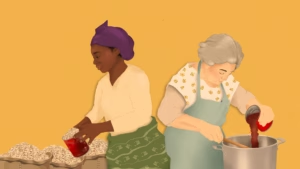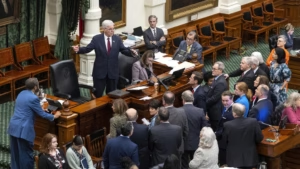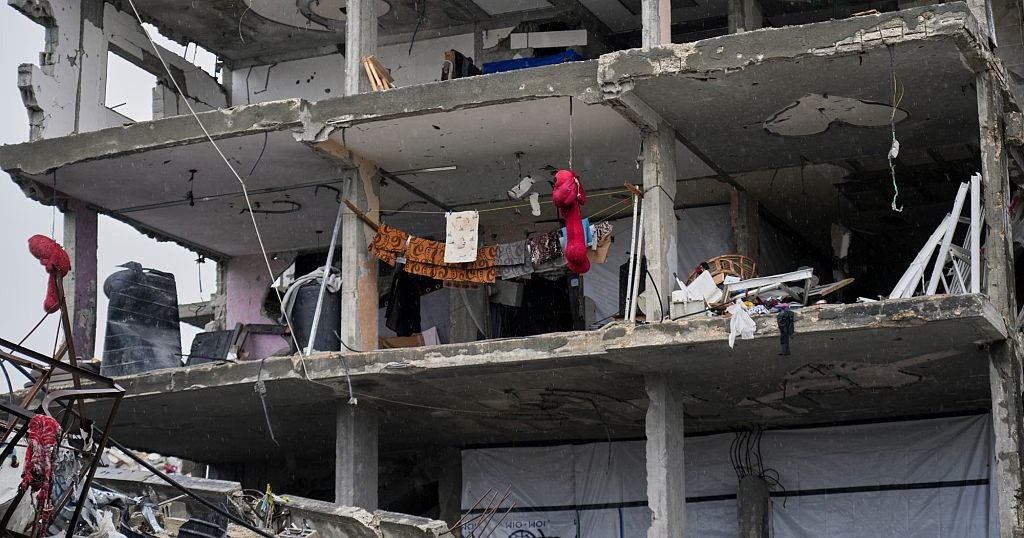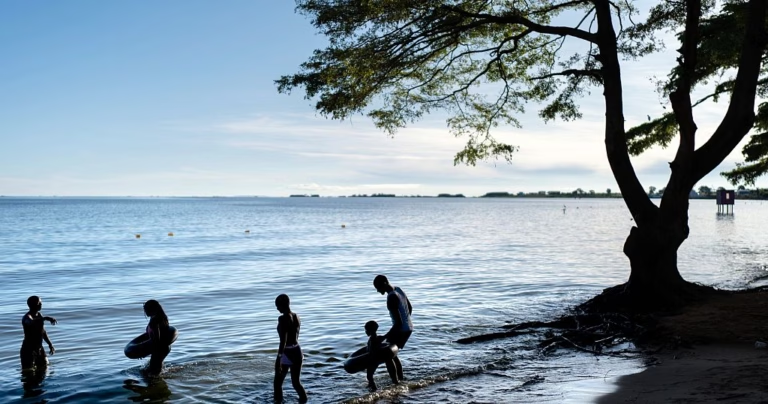
According to aid workers, this move is jeopardizing the progress made during the six-week ceasefire in preventing widespread famine.
Many people are queuing outside aid distribution centers across Gaza, hoping to receive assistance amid deteriorating conditions.
Last week, the World Food Programme announced that it does not have any food reserves in Gaza, as it has been focusing on distributing incoming food to the hungry population during Phase 1 of the deal.
Humanitarian organizations are working to distribute dwindling supplies to the most vulnerable individuals. In Khan Younis, people are facing challenges in obtaining bread and basic necessities.
One resident, Bushra Abu Akar, shared that during her last aid distribution, she received only one bag of flour, which is insufficient for feeding her children.
“For families with children, this amount is not enough. We need more than this. The situation is very difficult. No one is working. There is no money, there is nothing,” she stated.
After more than 16 months of conflict, the population of Gaza relies entirely on transported food and aid.
Fares al-Qeisi, another resident of Khan Younis, mentioned that the situation had slightly improved under the 42-day ceasefire, but before that, it was dire.
“It was a famine. People couldn’t satisfy their hunger. Bread was scarce. Children would cry in the morning, longing for a piece of bread,” he recounted.
Israel has faced significant criticism for suspending supplies.
The United Nations human rights office remarked on Friday, “Any denial of the entry of essential goods for civilians may amount to collective punishment.”
On Sunday, Israel cut off Gaza’s electricity supply as a means to pressure Hamas into accepting an extension of the first phase of the ceasefire that ended a week ago.
Hamas denounced this move as unconscionable blackmail.
They have rejected the proposal to extend the first phase of the ceasefire and are demanding immediate negotiations on the second phase.
Israeli mediators are set to meet in Doha today, as Egypt, Qatar, and the United States attempt to resuscitate the deal.
Discussions on the second phase, which aim to achieve a lasting truce and complete Israeli withdrawal from Gaza, were supposed to begin a month ago.






